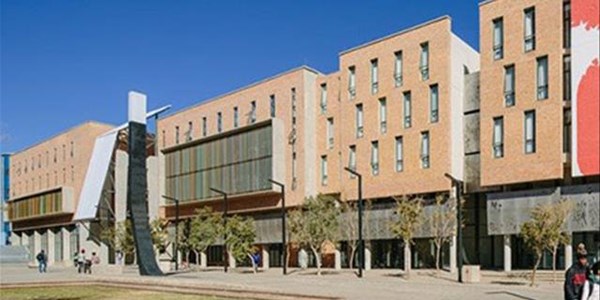Central SA
Sol Plaatje University 86% dependent on grants─── OLEBOGENG MOTSE 10:25 Tue, 03 Nov 2020

The six-year-old Sol Plaatje University in the Northern Cape still receives approximately 86% of its revenue from government grants.
According to Statistics South Africa (Stats SA), the University of Mpumalanga and Sol Plaatje University (SPU) are the traditional institutions of higher learning that depended the most on government grants in 2019. Stats SA notes that both universities were established in 2014 and are therefore still new.
OFM News’ Olebogeng Motse reports, that while these institutions from a percentage perspective depend on the government more than their established counterparts, this does not mean they cost the government the most from a Rands perspective.
The Universities of Cape Town and the Witwatersrand depend the least on government grants in the country – roughly a third of their revenue comes from the state. However, the value of the money they receive in Rands from the government is significantly higher than that given to the University of Mpumalanga and Sol Plaatje combined. For example, government grants cover 34% of UCT’s overall R6,9 billion revenue. This translates to over R 2,3 billion in funding, double the amount given to Mpumalanga, and almost three times more than the funding allocated to Sol Plaatje by the state.
In 2014, the SPU registered 124 students. In 2020, almost 2,000 students were registered, including 72 postgraduates, an indicator the institution is indeed growing rapidly and will as the years progress, become more self-sustainable.
In mid-2020, Sol Plaatje University (SPU) quietly welcomed Professor Andrew Crouch back to his native province following his stint as Vice-Principal and Deputy Vice-Chancellor responsible for Academics at Wits University in Johannesburg. Crouch, who took over the SPU helm from his predecessor, Yunus Ballim, spoke to OFM News at the top of the year regarding some of his plans to help develop the newly formed university further.
He said the Northern Cape-based institution needed to focus on the scholarship of teaching and learning in part by establishing niche base programmes and building the reputation of said programmes. Having had been Dean of the Science Faculty and Vice-Chancellor responsible for academics at Wits, Crouch is well acquainted with “establishing teaching and learning and entrenching it”.
Ultimately the aim is that Sol Plaatje will become a research-intensive institution, and so one of his five goals is establishing structures for research, in particular, desert studies.
“Kimberley is in a semi-desert area, a water-stressed environment, a very arid environment, I think desert studies is a niche area for this country. We know so little about our deserts, but half of the country is in a semi-desert area,” said Crouch.
OFM News













